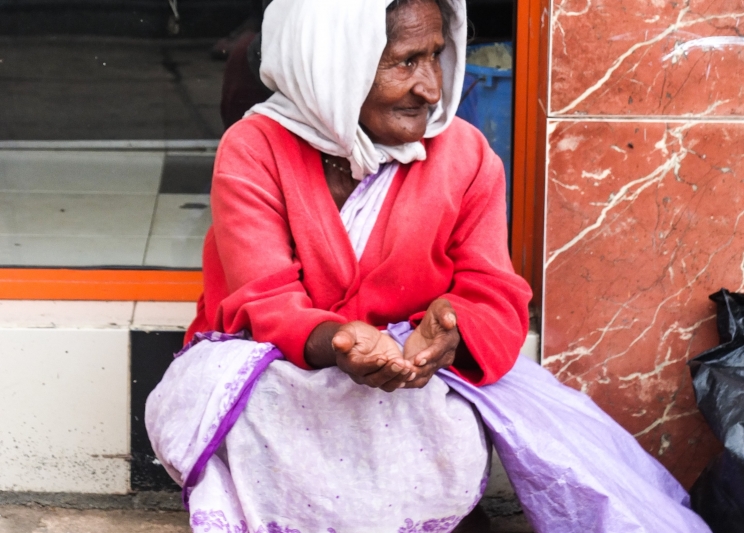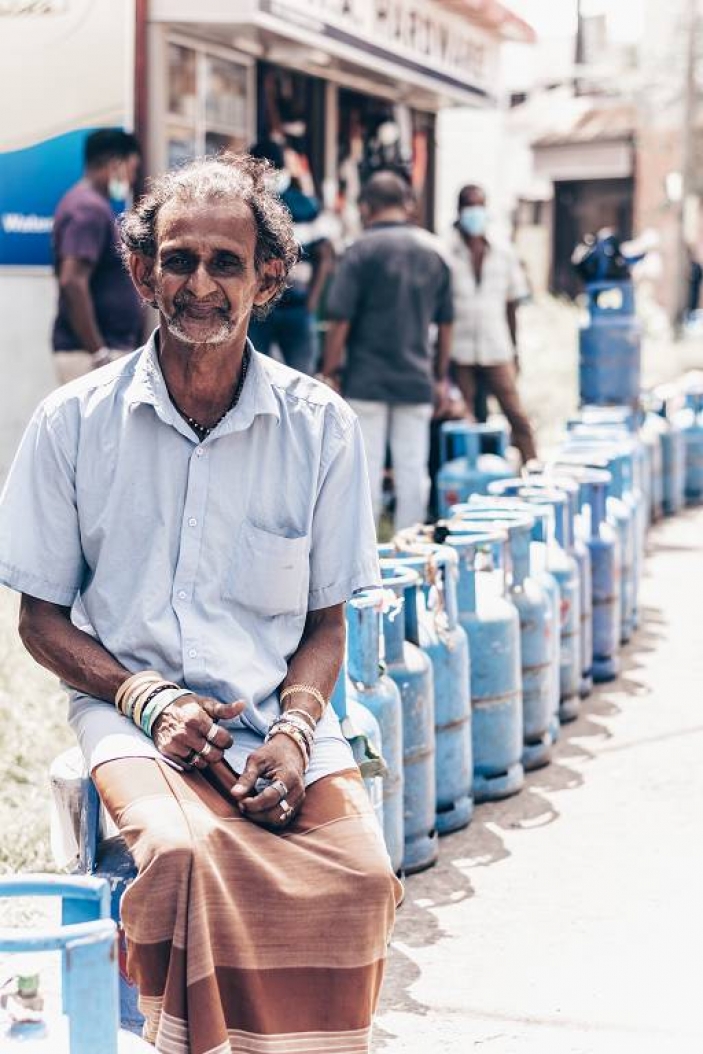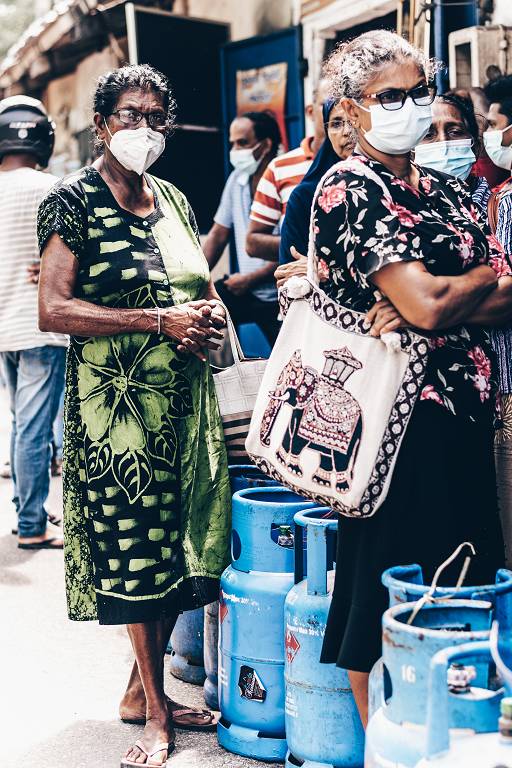As public anger about Sri Lanka’s economic collapse leads to the downfall of the government, HelpAge reflects on what needs to be done to empower the country’s older people and protect them during the current crisis.
Sri Lanka is facing its worst economic crisis in 70 years. First the COVID-19 pandemic and then the Ukraine war hurt the economy creating higher import bills for fuel and food leading to double-digit inflation and a depreciation of the rupee against the US$. These external blows aggravated an already difficult situation following a thirty-year civil conflict, excessive foreign borrowing for low return infrastructure projects, and rising external debt.

Sri Lanka’s economic collapse badly affects older people’s income security. © Shutterstock
The country is experiencing exponential inflation growth – soaring from 39.1% in May of this year to 54.6% by June, according to the Colombo Consumer Price Index (CCPI) – and the prices of consumer goods are going through the roof. In that same one-month period, food inflation increased from 57.4% to a staggering 80.1%.
This situation has been compounded by a high dependence on imports for essential food, fuel and pharmaceutical items. Because of the collapsing economy, the supply of such goods has become very limited and extremely rationed.

Essentials are scarced in Sri Lanka due to the economic crisis. © HelpAge Sri Lanka
The daily lives of people, irrespective of their socio-economic standing, now entail an unending cycle of waiting in queues for basic goods. Everyone, including older people, must wait for long hours in uncomfortable conditions in an effort to obtain essentials like cooking gas, kerosene oil, fuel, and other basic food items.

Older people have to queue for hours to access essential products. © HelpAge Sri Lanka
Food insecurity has also been aggravated by the lack of chemical fertilizers which have led to a substantial reduction in the production of rice, fruit and vegetables.
Furthermore, hospitals can no longer obtain imported medical tools and essential drugs, especially those meant for non-communicable diseases, which mostly affect people in their old age.
Given the urgency of the situation, HelpAge Sri Lanka undertook a rapid assessment of the impact the current economic crisis is having on the welfare of the country’s older men and women, who are one of the highest risk social groups in the country.
Heenmanika, a 70 year-old widow living in Maha Oya said:
“I didn’t have three meals per day. I survive on one or two meals a day now. If I had something to eat only, I ate, otherwise I drink water and sleep. I need LKR 500 now to buy what I bought for LKR 50 before”.
Urgent action is needed in Sri Lanka
Urgent action is required to ensure food security and access to healthcare for the country’s older people who do not have any income security.
Given the dire situation of older people in Sri Lanka, HelpAge is calling for urgent action to ensure the income security of older populations, in particular:
-
The country’s social protection system must be further strengthened during the present economic crisis in the form of social assistance.
-
Older people’s associations need to be empowered to provide an effective community mechanism for strengthening the voices of older people.
-
Promoting home gardening as this will contribute to higher agricultural production, thus reducing food insecurity.
-
The government must intervene and promote the facilities available at local ayurvedic hospitals and organise mobile health clinics for medical consultation as well as for the distribution of drugs at affordable prices.
-
Encourage intergenerational harmony by promoting community volunteering between different age groups.
By Samantha Liyanawaduge, Executive Director, HelpAge Sri Lanka
